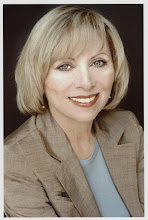American values appear to be changing from conspicuous consumption to more responsible savings and spending, but we’re all wondering whether this behavior shift will really be an enduring change in our values and behavior over time. Will we continue to save when we feel the tough times have subsided and we’re somewhat back to a normal economic life as we define it?
We’re hoping that we will be able to develop and maintain a healthy savings habit and make better use of our money. But obviously spending habits are a challenge to change. According to the latest survey data (August 2009), it appears that Americans are starting to spend again.
Over the last two decades, I’ve discovered that financial habits and behavior are subconsciously motivated and a result of how we think and feel about money. To make any significant impact in changing old habits and acquiring new financial behavior, we have to focus on our attitudes and feelings about our money as well as how we behave. Attitudes drive behavior and behavior drives attitudes. There’s a reciprocal relationship between the two which enables us to change and maintain that change so we can achieve our goals and realize our dreams.
This was a key part of my message that I delivered last week as I toured five cities: New Orleans, Baton Rouge, Houston, Dallas and New York with Capital One Bank who recruited me to educate consumers in how to develop healthy savings habits. It was also my goal to give people an understanding of how to start to save effortlessly and then maintain the savings over time.
Capital One is interested in consumers being able to use tools like their new offering, SmartCents Checking, which is available at Capital One Bank retail locations. The free personal checking account transfers 50 cents from the customer’s checking account to a linked savings account for every eligible online bill pay or debit card purchase. Capital One will match 100% of all eligible customer transfers for the first three months, and 5% thereafter. It seems to be an excellent tool to automate savings and help remove any will power decisions that might sabotage best intentions of saving on a consistent basis.
So, it was my goal in speaking with groups of consumers at each of five Capital One Bank locations to emphasize the importance of understanding how to use our personal financial traits to our greatest advantage and avoid powerful and unconscious emotional triggers which can sabotage our best intentions to change. We all know what happens to our New Year’s resolutions—our best intentions are defeated by our powerful, unconscious and ingrained mind-set or personality pitfalls that trip us up.
We all agree that we don’t want our money to serve our emotions which may not be in our best interest. Today more than ever we have to use this opportunity of the “Great Recession” to focus on what it takes to become more financially secure. As a result, we’ll become more confident and make more rational vs. emotional decisions that will ultimately bring us greater joy and less regret.
In my conversations with some of the people I met last week, it was obvious that they don’t lack the desire to improve their financial situation; they feel they lack the understanding of how to make more suitable decisions for themselves. They whole-heartedly accepted the fact that their attitudes and feelings about money make an impact on their financial situation and they were motivated to learn more about making the best use of their money personality. Couples were particularly interested in how they could use their perceived differences in personality so they could manage their money more harmoniously. All were eager to read my book, “Your Money Personality: What It Is and How You Can Profit from It” which Capital One Bank gave away. Many went a step further and expressed a desire to discover their money personalities by taking the Moneymax® questionnaire online so they could receive a personalized report of their trait scores and how to optimize them.
I was convinced, as I usually am in my conversations with people, that we lack personal education more than personal motivation in making the best use of our money. If you are interested in learning more about your individial money personality and how to profit from it, follow the link: www.kathleengurney.com/fpconsumer/index.asp.
Remember your money personality makes an impact on how you use your money and the satisfaction you reap from it. To make any positive impact, you have to focus on your attitudes and feelings about your money as well as how you behave.
Subscribe to:
Post Comments (Atom)


No comments:
Post a Comment